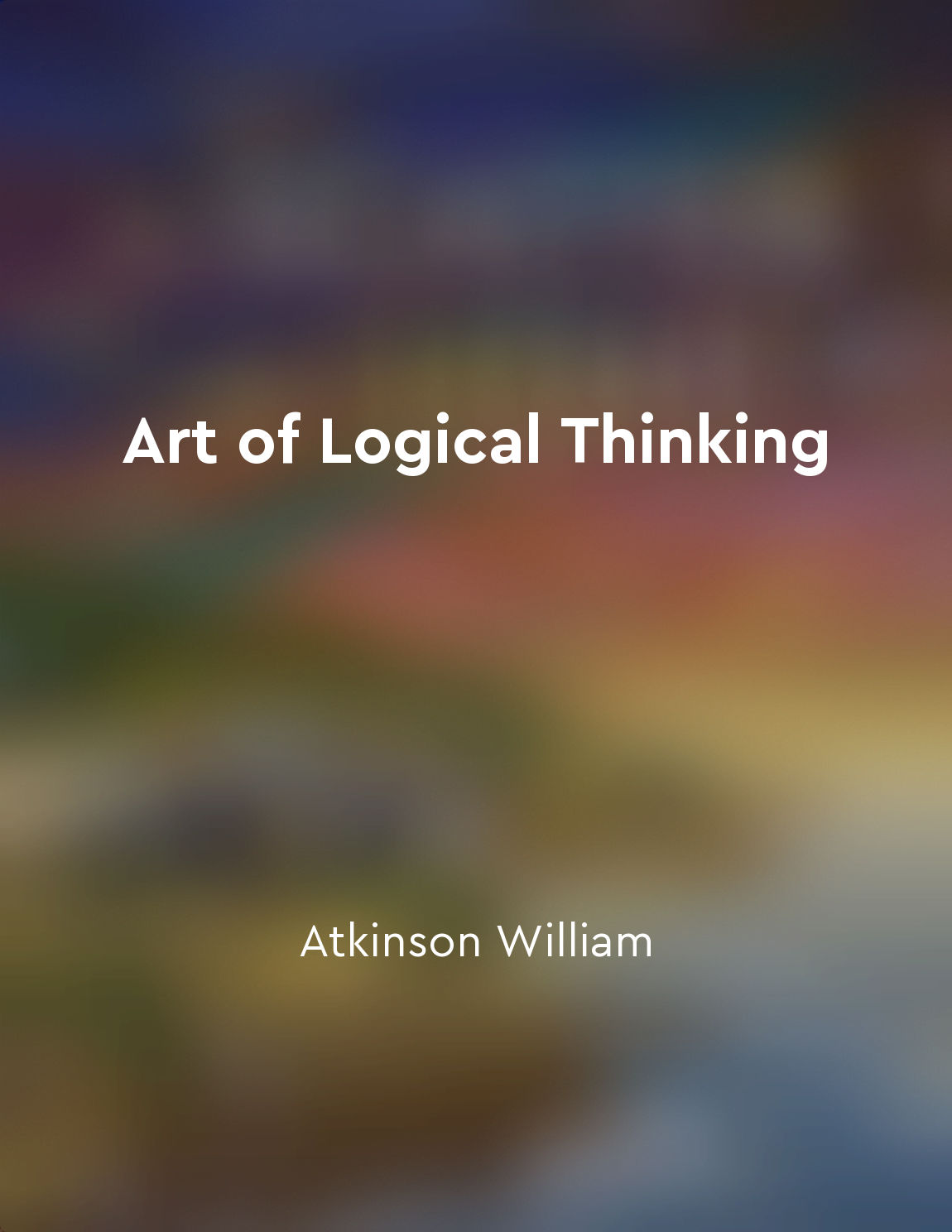Audio available in app
Deductive reasoning draws specific conclusions from "summary" of Art of Logical Thinking by Atkinson William
Deductive reasoning is a process of drawing specific conclusions based on general principles or premises. This type of reasoning moves from the general to the specific, starting with a broad statement or premise and then applying logical reasoning to arrive at a specific conclusion. In deductive reasoning, the conclusion is necessarily true if the premises are true and the reasoning is valid. The process of deductive reasoning involves identifying a general principle or premise, and then applying that principle to a specific situation or set of circumstances. For example, if the general principle is "all humans are mortal" and the specific circumstance is "Socrates is a human," we can logically conclude that "Socrates is mortal." This is because the specific conclusion follows logically from the general premise. Deductive reasoning is often used in mathematics, science, and philosophy to make logical arguments and draw conclusions based on established principles. It is a systematic and methodical approach to reasoning that helps us make sense of the world around us and arrive at valid conclusions based on sound logic. One of the key characteristics of deductive reasoning is that it draws specific conclusions. This means that the conclusions reached through deductive reasoning are precise and definite, based on the premises and the logical reasoning applied. Unlike inductive reasoning, which draws general conclusions based on specific observations, deductive reasoning starts with general principles and moves towards specific conclusions.- Deductive reasoning is a powerful tool for making logical arguments and drawing specific conclusions based on established principles. By following a systematic process of moving from the general to the specific, we can make sound and valid conclusions that help us better understand the world and make informed decisions.


